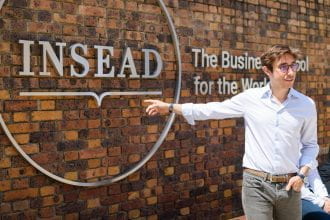
As numerous global reports of empty supermarket shelves and fights over toilet paper flood our newsfeeds, we may start to wonder, why the panic buying? After all, there have been no reports of an impending shortage in our stockpiles of basic goods such as toilet paper, soap and canned food.
INSEAD’s Assistant Professor of Organisational Behaviour and Academic Director of the Centre for Organisational Research Andy Yap, along with Nanyang Business School’s Charlene Chen, believe that panic buying – as currently witnessed during the COVID-19 novel pandemic – is a natural behavioural response to stress and anxiety, and to the loss of psychological control.
“The coronavirus is an invisible enemy. It’s something that we cannot see. And, when you cannot see your enemy, what happens is that you lose a sense of control. And when you lose your sense of control, you try and do things to compensate and achieve control again. Buying certain things is one way for you to do that,” Yap explained.
Basically, having these items makes people feel safer, whether they are effective against the virus or not. And this phenomenon transcends cultures and nationalities, as we have seen by the long supermarket queues in countries everywhere, from Japan and Australia to the US and those across Europe.
Now that we know that panic buying is normal but illogical, what can we do about it?
Yap’s advice on restoring control is to stay informed.
“You need to be educated and understand what’s happening, what the virus is about, how the virus causes you to be infected, the ways you can be infected and how you treat this viral infection.”
He also cautions against endless scrolling though social media, which can often distort our perceptions and act as an echo chamber.
“One of the reasons you see a lot of panic buying is because people are watching and seeing photos and videos of people buying toilet paper, all sorts of things, things that are running out.”
In addition, governments need to be transparent and informative, demonstrating that they have a game plan in mind and that they are taking steps to address the situation. How action is communicated, including when and how often, is critical to diffusing panic and restoring a sense of equilibrium.
And reassuring the public that yes, there are enough noodles, handwipes and toilet paper to go around.
This story was first published on INSEAD Knowledge in March 2020.


